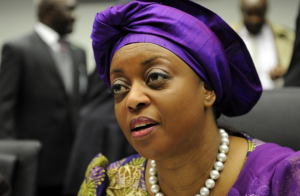
In a significant move to combat international corruption, the United States and Nigeria have formalized an agreement to repatriate approximately $52.88 million in assets linked to former Nigerian Petroleum Minister Diezani Alison-Madueke and her associates. The memorandum of understanding was signed on January 10, 2025, at the Federal Ministry of Justice Headquarters in Abuja.
Background on the Asset Recovery
Diezani Alison-Madueke served as Nigeria’s Petroleum Resources Minister from 2010 to 2015. During her tenure, she was implicated in numerous corruption scandals involving the misappropriation of public funds and money laundering. The U.S. Department of Justice (DOJ) initiated investigations into assets acquired through these illicit activities, leading to the identification and seizure of the “Galactica” assets, which include luxury properties and high-value items purchased with proceeds from corruption in the Nigerian oil industry.
Details of the Repatriation Agreement
The agreement was signed by Nigeria’s Attorney-General and Minister of Justice, Prince Lateef Fagbemi (SAN), and U.S. Ambassador to Nigeria, Richard M. Mills Jr. Under the terms of the agreement, the repatriated funds will be allocated as follows:
- Rural Electrification Projects: Approximately $50 million will be utilized through the World Bank to fund rural electrification initiatives aimed at increasing the reliability and availability of renewable energy in Nigeria.
- Rule of Law and Counter-Terrorism Initiatives: The remaining $2.88 million will be disbursed as a grant to the International Institute for Justice (IIJ) to support counter-terrorism capacity building for criminal justice sector practitioners in East, West, and North Africa.
Statements from Officials
Attorney-General Fagbemi emphasized that the agreement underscores Nigeria’s commitment to fighting corruption and ensuring that recovered assets are used for the nation’s socio-economic development. He stated, “This partnership highlights the importance of international cooperation in addressing the global scourge of corruption.”
Ambassador Mills reiterated the U.S. government’s dedication to facilitating restitution and supporting integrity in governance. He noted, “This agreement marks a significant milestone in ongoing collaborations between the two governments in combating corruption, upholding the rule of law, and recovering stolen funds for the benefit of the Nigerian people.”
Implications for Anti-Corruption Efforts
The repatriation of these funds represents a victory for international anti-corruption initiatives and highlights the effectiveness of cross-border collaboration in asset recovery. It also serves as a deterrent to public officials who might consider engaging in corrupt practices, knowing that illicitly acquired assets can be traced, seized, and returned to their rightful owners.
Future Monitoring and Accountability
Both governments have pledged to ensure that the repatriated funds are utilized transparently and accountably. The World Bank and the International Institute for Justice will provide periodic reports on the implementation of the projects funded by these assets, ensuring that the Nigerian populace benefits directly from the recovered funds.
Conclusion
The signing of this memorandum of understanding between the United States and Nigeria marks a pivotal step in the global fight against corruption. By ensuring that recovered assets are redirected towards developmental projects, both nations reaffirm their commitment to upholding the rule of law and promoting transparency in governance.

